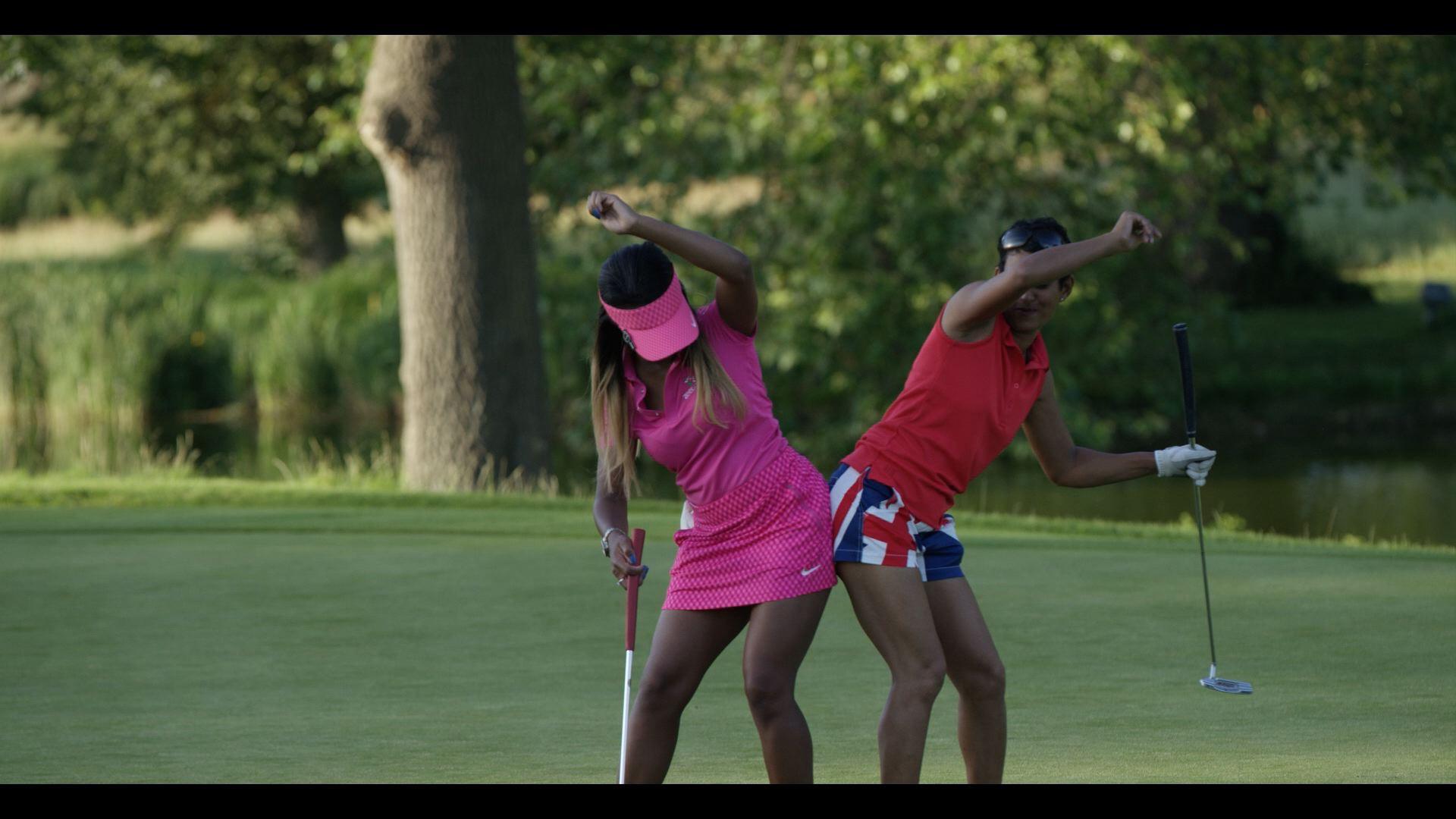Get Inspired: Man with multiple sclerosis out to 'put smiles on faces' through golf
- Published
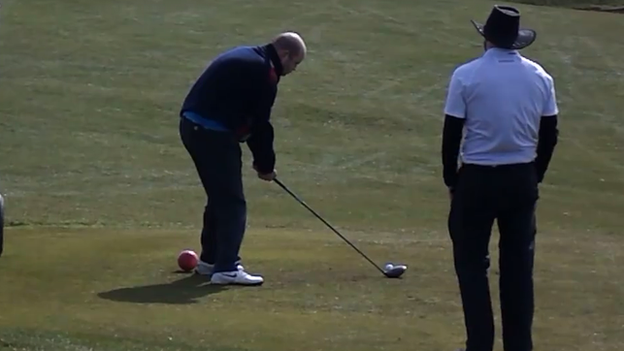
Primary progressive MS is a rare form of the disease, with which patients see a gradual decline in their health
"I'm not brave, I just get on with it. What else can I do?"
So says Graeme Robertson, although most would disagree.
The 53-year-old, from Berkshire, has lived with primary progressive multiple sclerosis since 1998. It is steadily making him weaker and he now struggles to walk unaided.
But Graeme - who has a 10-year-old daughter and two stepchildren with his wife, Sue - has refused to allow his condition to define him.
On the contrary, he has rekindled his childhood passion for golf to raise awareness of disability sport, rising to the position of captain for the England disabled golf team.
"I don't think of myself as an inspiration because all I do is get on with my life," he said.
"A lot of people say to me 'you're amazing, you're brave' and I'm thinking 'no, I'm not brave'. I just get on with it. What else can I do?'
"But I am proud of myself. When you look around the room you can see people who are friends, and they wouldn't know each other if it wasn't for us.
"It's been great for me, this journey, playing golf again, and I'd like to persuade other people to do the same.
"We're affecting peoples' lives, and that's more important than anything really isn't it? Putting smiles on peoples' faces."
'It's been the making of me'
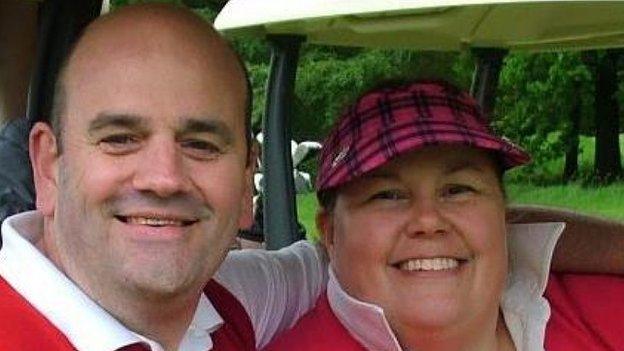
Graeme married wife Sue, 50, in 2004 - six years after his diagnosis with MS
Graeme had lived an active life until MS struck aged 35, playing golf off a handicap of 13 as well as "any ball sport you can name".
And it was while playing golf that he first noticed that all was not well with his health, with the condition leaving him walking "as if he was drunk".
He acknowledged that it would have been easy to give up and lose sight of his future after hearing the diagnosis, but credited his positive character as the thing that carried him through.
"I'd already had two major relationship break ups and also three redundancies - I wasn't one of these people who have been blessed with things going smoothly," he said.
"So for me it was just another challenge. It's a daft thing to say, but it's almost been the making of me."
'Like climbing Mount Everest'
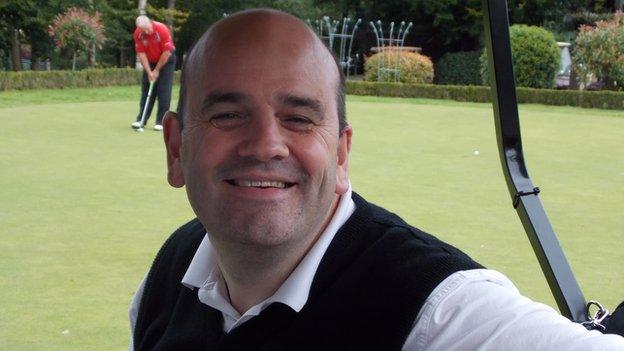
As well as golf, Graeme uses yoga, hydrotherapy and gym work to stay active
The latest endeavour into which he is channelling that positivity is drive2drive,, external a charity fundraising event taking place on Monday, 30 May, for which Graeme and fellow disabled golfers will play 18 holes at 18 golf clubs around Berkshire, Oxfordshire and Buckinghamshire.
Their hope is to raise funds for the Disabled Golf Association (DGA) and Team England.
But he's also hoping to raise awareness for the 'ordinary people' who are working to use sport as a method of overcoming the perceived boundaries that disability can raise.
"This is the equivalent of me climbing Mount Everest really," he admitted.
"Somebody who can barely walk across a room, who struggles to get up and down, and I've got to get myself around 18 holes.
"The clubs have been so supportive, without their support there'd be nothing. And a lot of them have said I can play a par three as well.
"We've had tremendous support from clubs around the country - not just for drive2drive - helping us to get out and play golf, and that's all we want really.
"Me hacking around a golf course does frustrate me at times, but I'd much rather be doing that than sitting on my backside doing nothing."
'You can do what you want to do'
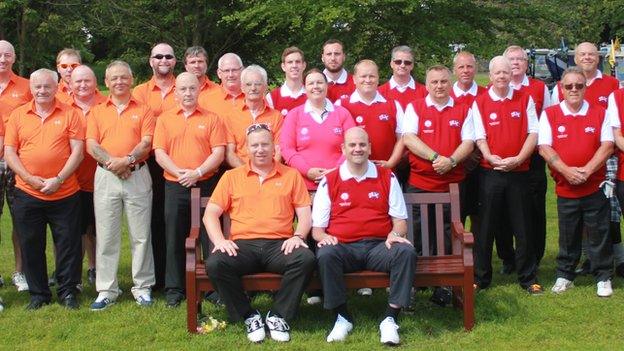
Graeme is the captain of Team England's disability golf team
All this comes after Graeme didn't touch a club for 12 years after his diagnosis, and it took a chance invitation to a disability golf event for him to overcome those boundaries himself.
Within 10 seconds of playing that day, he realised that all he wanted to do was "to spread the word and get more people playing golf".
He has been good to his word, playing a role in raising membership in the DGA to over 900.
And while some of those who play are still more than competent out on the course, Graeme insisted that is a secondary concern.
The most important thing to him is persuading people to overcome their issues and to embrace the therapeutic potential of sport.
"We do have some lads who are playing with one arm or one leg, but can still knock a ball around and get round in 12," he said.
"We have that top end but we're trying to get people educated to the fact that you can get out there and do it, because it's good for you.
"You're focussing on that ball, you're out in the fresh air, you're meeting people, you're stimulated.
"People think that if you get diagnosed with MS, or you've had a stroke or Parkinson's, then that's it, your life's over.
"But we're encouraging people to just get out there - you can still do what you want to do. Where there's a will there's a way."
- Published28 September 2018
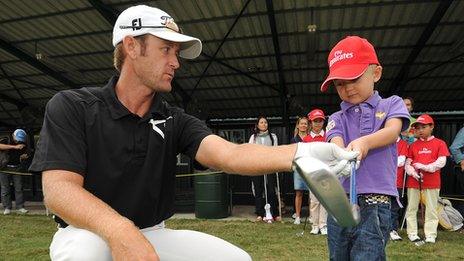
- Published23 May 2016
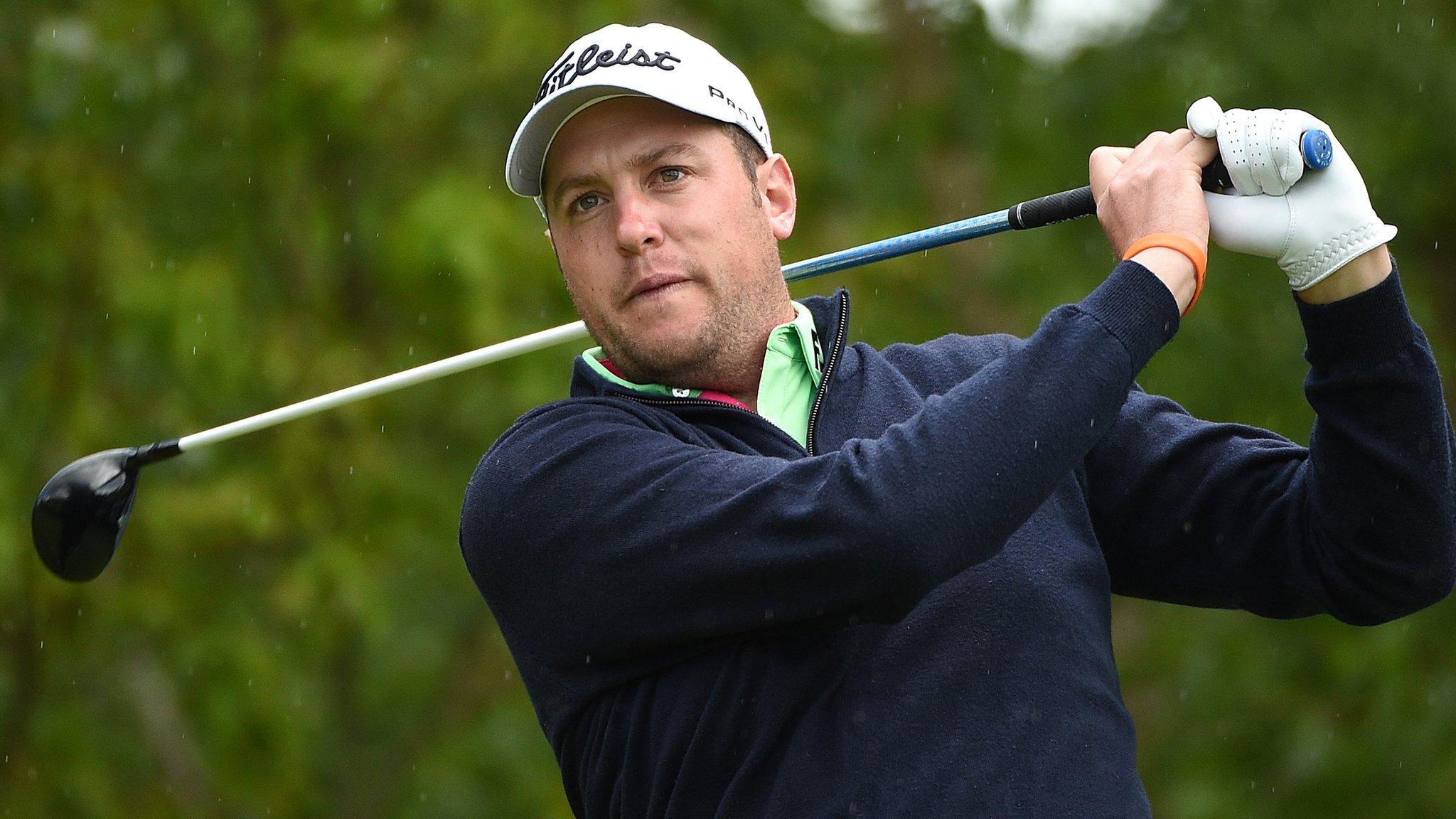
- Published20 May 2016
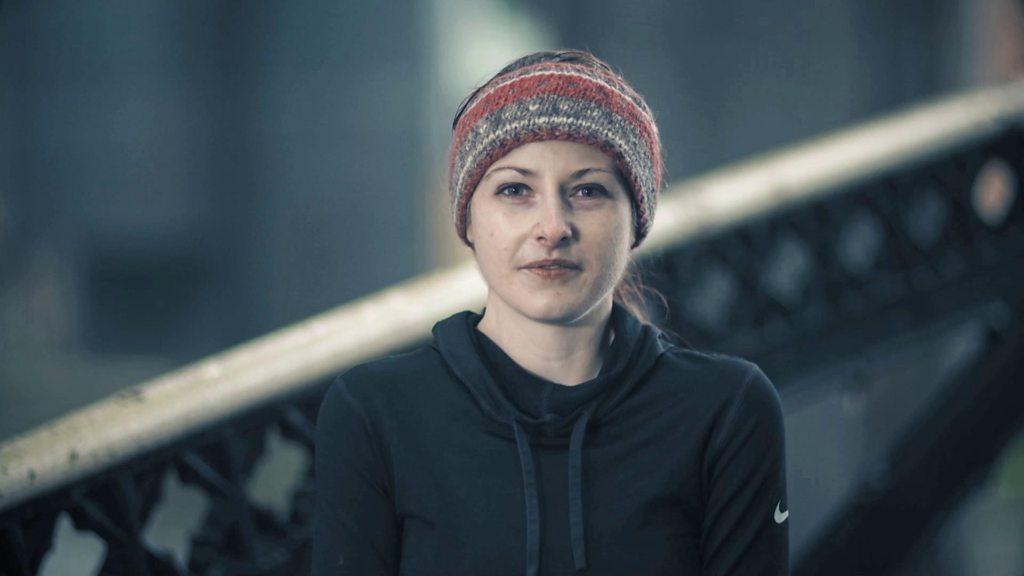
- Published17 July 2015
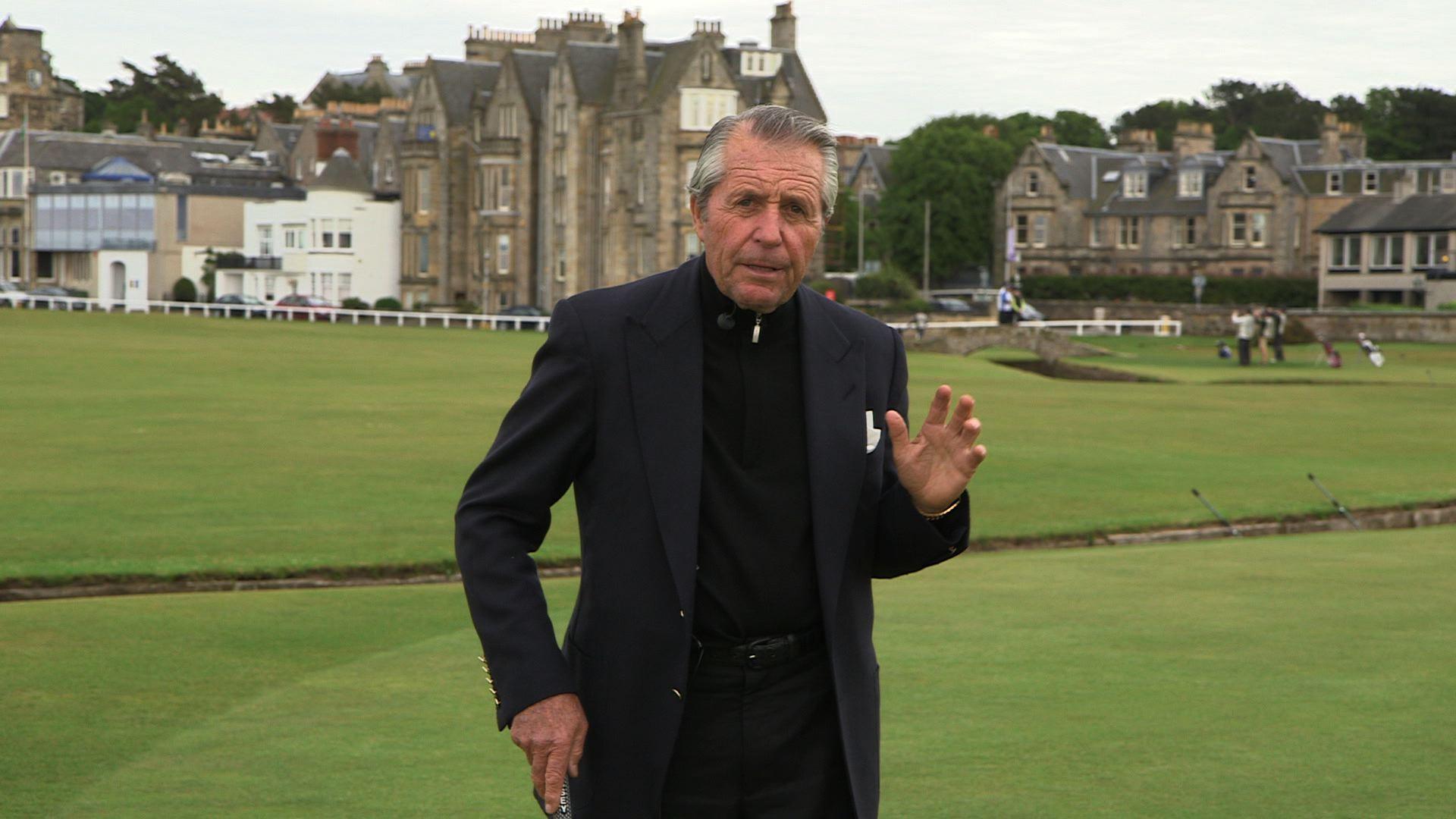
- Published4 May 2016
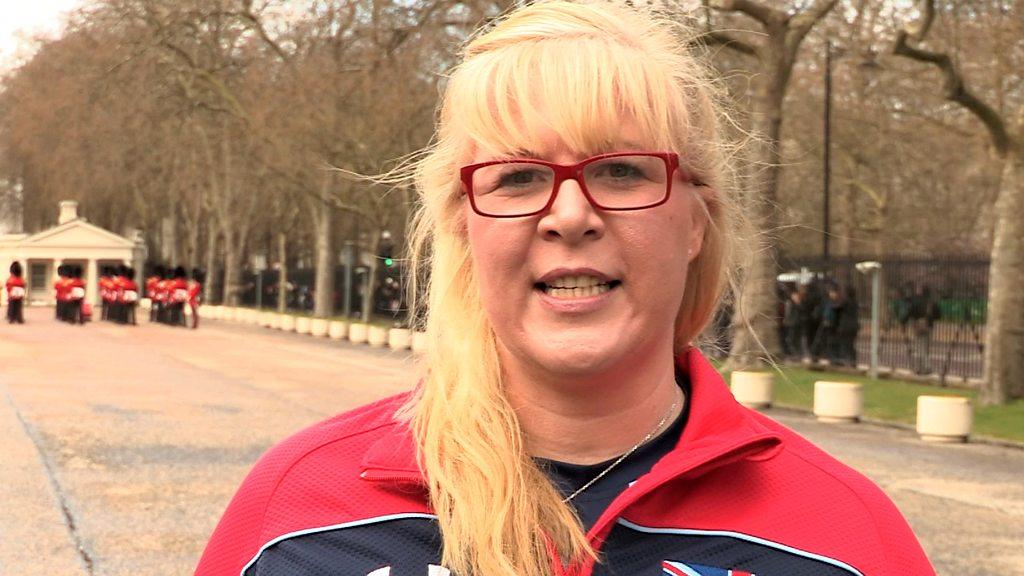
- Published30 July 2015
